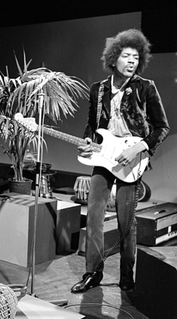A Quote by Karl Popper
But some of these theories are so bold that they can clash with reality: they are the testable theories of science. And when they clash, then we know that there is a reality; something that can inform us that our ideas are mistaken.
Related Quotes
Do you want a sign that you're asleep? Here it is: you're suffering. Suffering is a sign that you're out of touch with the truth. Suffering is given to you that you might open your eyes to the truth, that you might understand that there's falsehood somewhere, just as physical pain is given to you so you will understand that there is disease or illness somewhere. Suffering occurs when you clash with reality. When your illusions clash with reality, when your falsehoods clash with truth, then you have suffering. Otherwise there is no suffering.
Even mistaken hypotheses and theories are of use in leading to discoveries. This remark is true in all the sciences. The alchemists founded chemistry by pursuing chimerical problems and theories which are false. In physical science, which is more advanced than biology, we might still cite men of science who make great discoveries by relying on false theories.
Our minds are specifically adapted to developing certain theories, and we have a science if the theories that are available to our minds happen to be close to true. Well, there is no particular reason to suppose that the intersection of true theories and theories that are accessible to the mind is very large. It may not be very large.
We don't have a great clash of civilizations, a clash of ideologies, a clash of alternative models, where governments thought to themselves, if we go too far, if we sort of trample unreasonably on rights, we'll give birth to a political movement which will cost us our credibility, and will possibly cost us our offices, because people will vote for the other team, the other guys.
Until now, physical theories have been regarded as merely models with approximately describe the reality of nature. As the models improve, so the fit between theory and reality gets closer. Some physicists are now claiming that supergravity is the reality, that the model and the real world are in mathematically perfect accord.
Scientific theories need reconstruction every now and then. If they didn't need reconstruction they would be facts, not theories. The more facts we know, the less radical become the changes in our theories. Hence they are becoming more and more constant. But take the theory of gravitation; it has not been changed in four hundred years.
My favorite band of all time is The Clash. The thing I love about The Clash is they started out as guys who could barely play three chords. They dabbled in reggae, punk, rap, jazz. They came to a sound that could only be defined as The Clash. It was impossible to say what it was. I admire them for that.
For the theory-practice iteration to work, the scientist must be, as it were, mentally ambidextrous; fascinated equally on the one hand by possible meanings, theories, and tentative models to be induced from data and the practical reality of the real world, and on the other with the factual implications deducible from tentative theories, models and hypotheses.
No theory ever agrees with all the facts in its domain, yet it is not always the theory that is to blame. Facts are constituted by older ideologies, and a clash between facts and theories may be proof of progress. It is also a first step in our attempt to find the principles implicit in familiar observational notions.





































